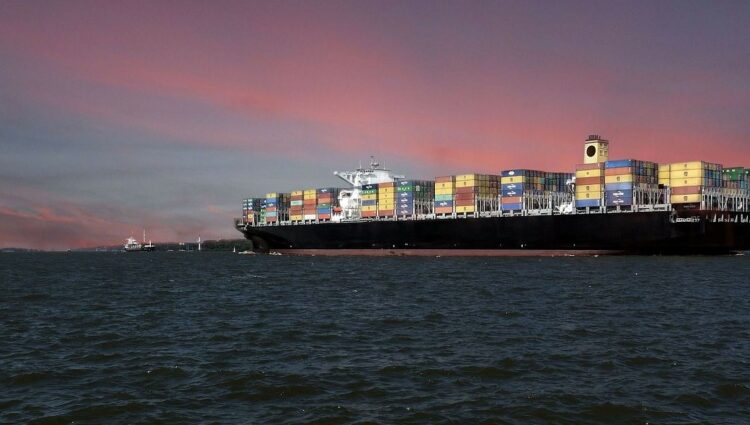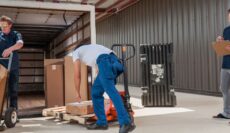International shipping over oceans provide great opportunity to transport your shipment to different continents in a timely manner. But, there are many hazards that can result in significant losses. Let us go through the details in the following sections.
Preventing Incidents in International Shipping
Weather Hazards
When you are shipping over oceans, some weather associated threats that may affect your shipments include tropical cyclones, typhoons, squalls, and hurricanes. These weather threats can result in significant harm to your shipment and the cargo vessel may sink during the incident.
Violent winds (oftentimes hurricane winds reach speeds of up to 160 mph), surging waves, and torrential rains during natural calamities can cause serious damage to your shipment.
How can such incidents be prevented?
Using the strongest of ships can help companies providing freight forwarding services avoid these incidents. Nowadays, container ships are constructed in such a way that they can withstand storms. Material engineers utilize computers for modeling the stress that a ship’s hull has to bear. This information is then used for creating steel that is capable of withstanding the required stress.
In addition, use of other techniques like watertight doors make sure the ships remain safe during severe weather conditions.
Another thing to do during natural calamities such as storms, is to avoid them. It is now possible to anticipate storms better that what was possible in the past and this has been made possible by the advancement in meteorology and weather detection technology. A freight forwarder company can easily utilize this information to evade these storms and keep its shipment safe.
Geographic Hazard
This includes elements that can harm the vessel such as sandbars, icebergs, and coral reefs. Apart from these elements, shipping canals face risk when they are crossing canals (like the Panama and Suez canal). Problems can occur when a large vessel is crossing the canal and it strikes the sides or bottom of the canal.
How can these problems be avoided?
There are certain things which can be done to prevent these incidents. Let us delve into the details.
- Firms providing services such as vessel shipment, ftl trucking, or other similar services should do the proper planning to select the right route for the vessel. Many times geographic incidents take place due to the fact that the proper planning was not conducted in the initial stage or the navigation was flawed. For instance, a freight forwarder company should keep note of the fact that the Panama canal is only able to support container ships having 4,600 containers or less. Thus, if a higher number of containers are being shipped then the company should look for an alternate route.
- International shipping companies should also make use of the latest navigational technology like GPS so that ships can steer away from locations where coral reefs or sandbars are present.
Technological Hazards
These hazards include incidents where something goes wrong with the ship or its equipment. This would involve issues with the engine, structural problems, failure of navigational equipment, etc.
Another technological hazard that commonly occurs is shipping containers being lost during shipment. This can result in great financial losses and in addition, damage other ships that pass through the same route.
How to avoid such problems?
Few of the things that can be done to avoid these problems include:
- A detailed inspection of the ship and its equipment is a must before the start of the voyage. In addition, the freight forwarder company should ensure compliance to regulations related to the inspection of the vessel for safety. It is also beneficial to utilize services of firms which specialize in tasks such as inspection, test, and certification of vessels. By handing over this responsibility to such firms you will have the assurance that all safety inspections will be performed as required.
- The second thing to do will be to make sure that all the equipment used on-board the vessel is kept up-do-date. If it is found that some machinery is not working then the problem should be fixed before the journey starts.
Let us examine a few of the other things which can be done to prevent shipping incidents.
Follow Repair and Maintenance Procedures
Many times it is found that accidents occur when operations are not carried out according to standard procedures related to maintenance, repair, and the testing of equipment. Thus, it is important to utilize the right tools and parts as well as follow safe equipment use guidelines to avoid problems.
Moreover, standard techniques should be utilized while testing equipment and these tests should be conducted at average operating loads and pressures. This way it can become easier to confirm quality as well as reliability of maintenance or repair work that is performed.
Additionally, it is necessary to test all the alarms and sensors inside the vessel on a regular basis so that you have the assurance that when required, they will work. Moreover, these alarms should be capable of offering the required level of warning to people inside the vessel.
Maintain Clear Access to Spaces with High Risk
It is important to ensure that high risk spaces (these spaces include the hull penetration) remain freely accessible. In the case that these high risk spaces become blocked, safety hazards are created. It will become difficult for operators to quickly respond to emergencies that arise, such as flooding.
Prevent Distractions
Another important aspect to consider with respect to incidents in international shipping is distraction. If accidents are to be avoided then it will be necessary to minimize distractions. It is worth mentioning here that operators need to maintain proper communication with crew members as well as dispatchers and perform other tasks such as check instruments and equipment.
But, if there is something that is hindering a vessels operation, then it is to be stopped so that operators can fully concentrate on their task and tragic incidents can be avoided.





